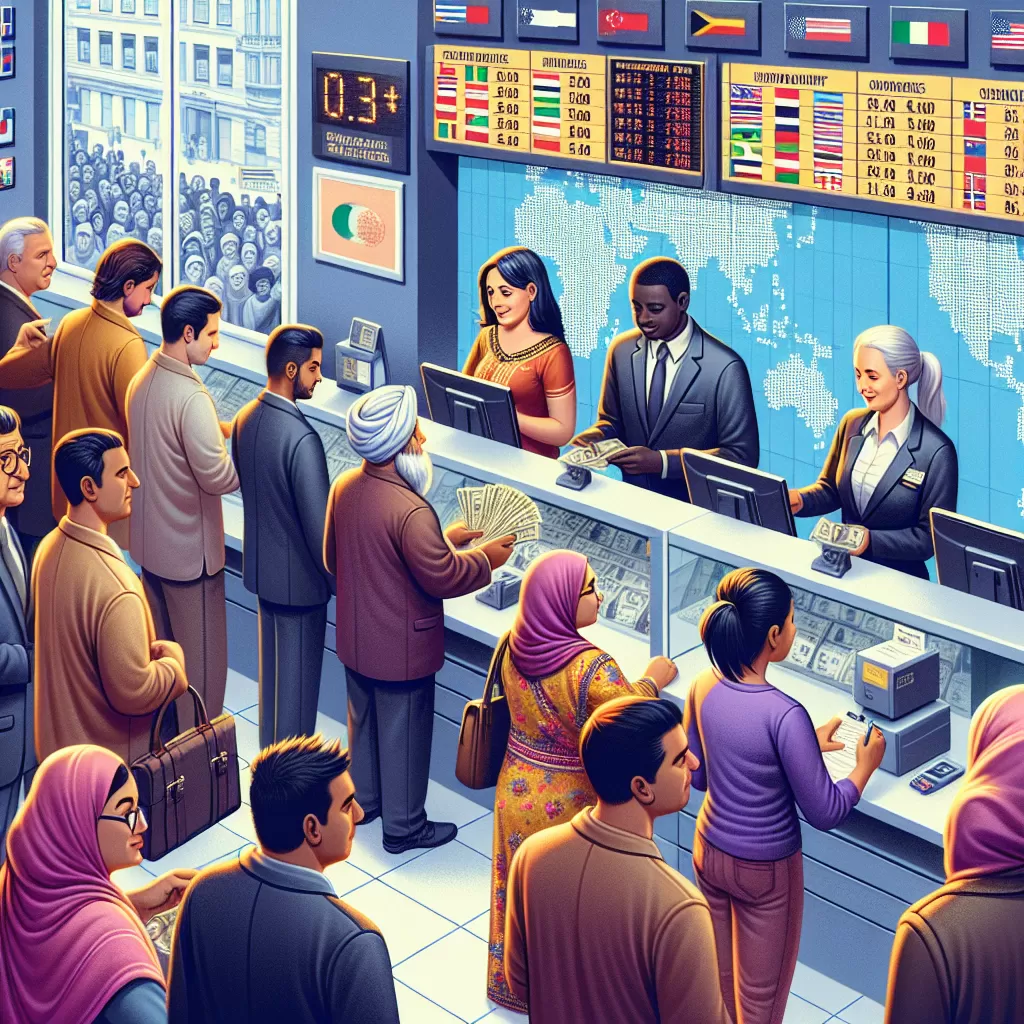Where Do We Exchange Foreign Currency
Follow Currency Mart April 10, 2024
Where to purchase Foreign Currencies?

Introduction
Foreign currency exchanges are an integral method of international transactions. They're a backdrop to an interconnected marketplace and symbolize the ebb and flow of the global economy. But when it comes to converting one currency into another, where exactly does one carry this out? Let's delve into the various places where this monetary metamorphosis takes place, viewing their advantages, disadvantages, and the mechanics behind how they function.Banks
The most traditional method of exchanging foreign currency is through banks. Whether you possess a relationship with them or not, most banks provide services for currency exchange. Banks are perceived as safe and conventional, given their extensive presence around the world. Their exchange rates might not always be the most favorable due to their high operating costs and overheads. Yet, they provide a level of reassurance unmatched by other venues due to their regulated operations.Currency Exchange Bureaus
Exchange bureaus, stationed at airports, city centers, and tourist hotspots, are another familiar option. They are typically easier to access, offer longer operational hours, and provide instant cash. However, currency exchange bureaus often enforce higher exchange rates and fees. It's crucial to compare their rates before making a transaction, ensuring you're not incurring superlative costs.Online Currency Exchange Platforms
The Internet has revolutionized foreign exchange significantly. Online currency exchange platforms offer competitive rates because they have low overhead costs, and they can provide services to customers regardless of geographical location. These platforms also offer user-friendly interfaces, swift transfers, and secure transactions. Some popular platforms are OFX, TransferWise, and Revolut.ATMs
Modern automated teller machines (ATMs) are not just for withdrawing cash; they can also exchange currency. Using an ATM in a foreign country to withdraw local currency can be an easy and efficient way of getting the local currency you need. However, you should be aware of ATM fees and ensure your bank doesn't charge a high exchange rate.Peer-to-Peer (P2P) Currency Exchange
Peer-to-peer currency exchange represents a new age of foreign exchange. It involves matching people looking to exchange currencies directly, avoiding the traditional banking system. P2P exchange networks, like CurrencyFair or TransferWise's Borderless account, can offer better rates than banks or bureaus. The caveat here is that these networks rely largely on trust and mechanisms to ensure safety, which is still being fine-tuned and tested.Conclusion
Whether you priority is convenience, cost, or speed, foreign currency exchange can be carried out through various channels. Understanding each venue’s advantages and caveats helps in making the best financial choices when exchanging foreign currency. As the guardian of currency exchange, my duty is to guide you towards the best decisions. As we navigate an increasingly interconnected world, continual awareness of the methods, costs, and unique intricacies of foreign exchange remain crucial in stemming unnecessary expenditure while maximizing value when it comes to currency exchanges.
Where to purchase Foreign Currencies?